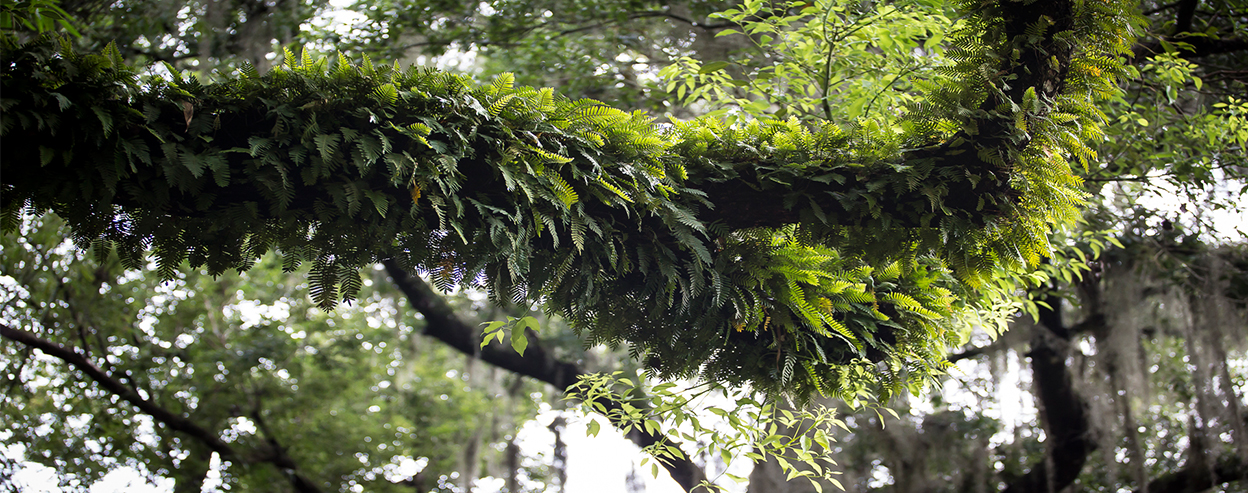Gotha Community
The small community of Gotha, Florida, was officially designated on April 20, 1885. The town is located in Orange County, between Ocoee and Windermere.
While living in Buffalo, New York in 1878, German printer Henry Hempel invented and patented a printing tool that revolutionized the way that pages were set up for printing. With new wealth earned from his invention, Hempel decided to create a German colony in Florida.
Hempel came to Central Florida in 1879, and began purchasing land. By 1883, he had acquired 1,000 acres where he created a town plat. He named the colony after his hometown in Germany, and invited other Germans to join him there.
To generate lumber, Hempel established a sawmill. This allowed for the construction of a general store, a post office, a school, a community hall, and other buildings in Gotha. He supplied wood shingles for some of the first homes in Altamonte Springs, Winter Park, and Maitland. His mill also provided orange crates for the local citrus industry.
“Gotha in the 1890s was a very lively community,” says Kathleen Klare, director of the Gotha Rural Association, Inc. “It had Turner Hall where it had musical events, minstrel shows, and dance events. They taught gymnastics. They even had a bowling alley in the 1890s. Because of the background and the intellect of these German people, they were rebuilding the character of their old German culture, and they were building it in the woods of Florida.”
At the same time that Hempel was organizing his German colony in Florida, the German Freethinkers League was founded by philosopher Ludwig Büchner.
“Hempel was not just building a little town,” says Klare. “Hempel was a freethinker. He was looking to build a colony of people that had similar perspectives.”
Freethinkers believed in individuality of thought, and forming one’s own opinions based upon logic, reason, and empirical data rather than authority, tradition, or religious dogma.
“Secular points of view were what they were espousing,” says Klare.
Horticulturalist and naturalist Dr. Henry Nehrling began purchasing land in Gotha in 1885. At first, Nehrling only visited Gotha for a few months each year.
“At that time he was working for the Milwaukee Public Museum, and he did not officially move down to Gotha until 1902,” says Klare.
Nehrling created Palm Cottage Gardens, a tropical garden that became a popular tourist destination in the early twentieth century. He also developed an experimental testing facility on the property, where he helped to establish Florida’s ornamental horticulture. Nehrling wrote many articles for scholarly journals and magazines, and became best known for his caladiums.
Nehrling Gardens was placed on the National Register of Historic Sites in 2000.
Many of the German families who first settled Gotha in the 1880s made their living in the citrus industry. When the Big Freeze of 1894-95 devastated orange crops in Florida, some of those families left the state. As the citrus industry recovered in the early twentieth century, new families moved to Gotha, but the community began to lose its distinctively German identity.
“As the citrus industry is gradually coming back, it’s offering job opportunities,” says Klare. “What you get is migration from neighboring states like Georgia and Alabama, but you’re getting different groups of people.”
The urban sprawl of the greater Orlando area is encroaching upon Gotha. The Gotha Rural Settlement Association, Inc. hopes to preserve the few remaining historic structures in the town.
“We do have a few buildings,” says Klare. “We have an old Gothic church that was built in 1913, that needs an awful lot of upkeep.”
The organization also wants to share the unique history of Gotha to help revive a sense of community in the town.
“I grew up in the Gotha community,” says Klare. “My family came in 1911. There were always community events, picnics, dinners, and different kinds of things that the Women’s Clubs were doing. It was very active. That has died since the 1990s. There’s a group of us now that would really like to bring back a sense of community.”
Brotemarkle, B. (2016, March 1). Florida Frontiers “Reviving the German Community of Gotha, Florida” Florida Today. Page 8A.
Retrieved from https://myfloridahistory.org/frontiers/article/108

